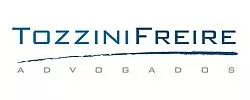When considering a purchase of a Brazilian company, the first point to call the attention refers to tax succession. While in many countries the purchase of assets is enough to cease the responsibility for tax contingencies, in Brazil whenever a company assumes assets of another company and such assets comprise one or more businesses, the acquirer is responsible for tax contingencies generated prior to the acquisition. If the seller remains active in the same or another business, the acquirer is secondarily liable, but if the seller stops operating and do not start another business within 6 months, the acquirer is primarily liable. As a result, it is always necessary to have a tax due diligence prior to the purchase.
Another important point is registration of investment with the Brazilian Central Bank ("BACEN"), which is the evidence of the amount invested in Brazil, and guarantee that such an amount can be repatriated in the future without income taxation. Whenever the purchase is made outside Brazil, the buyer will inherit the registration previously belonging to the seller, and any amount paid that exceeds such a registration will not be recognized as investment for the purpose of repatriation.
Upon the inflow of funds to invest in a Brazilian company, there is Tax on Foreign Exchange Transactions ("IOF/FX"), levied at a rate of 0.38%. This rate is reduced to zero in case of issuance of shares by listed companies, or investment in such shares by qualified investors ("2689 Investors"). Please note that IOF/FX rates may be changed at any time by Presidential Decree, up to 25%.
For a foreign investor to qualify as 2689 Investor, it is mandatory to nominate a Brazilian bank as representative, to register as such with the BACEN and the Brazilian Securities and Exchange Commission ("CVM"), and to obtain a registration number with the Federal Revenue Secretariat ("RFB"). In addition, the foreign investor cannot be resident in a tax haven jurisdiction (currently, Brazilian blacklist includes 65 jurisdictions).
Brazilian companies may remunerate the shareholders with dividends or interest on net equity ("INE"). Dividends can only be paid out of net accounting profits (except in case of preferred shares with fixed dividends, which can be paid with capital reserves) and are exempt from WHT. Differently, INE can be registered as a deductible expense for the purposes of calculating Corporate Income Taxes (IRPJ/CSLL, levied at a combined rate of 34% or 40% in case of financial or insurance institutions), and there is WHT at a rate of 15% or 25% (beneficiary in tax haven jurisdiction). The limit of payment corresponds to federal long-term interest rate ("TJLP") applied on the company´s net equity, while the limit of deduction is the greater between 50% of the year´s taxable profits (before deduction of INE) or 50% of accumulated profits.
The investment in a Brazilian company may be performed as equity or debt. In case of debt, thin capitalization rules apply, and such rules determines that the total debt with related parties cannot exceed 2 times the net equity value of the participation in the Brazilian company. In case of a related or unrelated party located in a tax haven jurisdiction, or beneficiary of a favorable tax regime outside Brazil, the thin capitalization limit is reduced to 30% of the Brazilian company´s net equity. Interest calculated on the excess debt will not be deductible for the purposes of IRPJ/CSLL. Interest payments are also subject to WHT at rate of 15% or 25% (beneficiary in tax haven jurisdiction). As of 2013, there will be financial transfer pricing for all inbound and outbound debt transactions involving related parties, and the interest will be limited to LIBOR for 6 months deposit in USD, plus a spread to be determined by the Minister of Finance.
In case of disposal Brazilian company´s shares – in Brazil or outside Brazil, to a Brazilian or to a non-Brazilian buyer – there is withholding income tax ("WHT") at a rate of 15% or 25% (if the seller is resident in a tax haven jurisdiction). The buyer has the obligation of calculating and collecting such WHT at the date of the share transfer, and when the buyer is not resident in Brazil, the buyer is obliged to appoint an attorney-in-fact in Brazil to make such a tax collection.
Equity investments have also been performed by means of the Brazilian private equity fund ("FIP"), which are closed funds to invest in shares of Brazilian listed or non-listed corporations, or convertible debt instruments. The inflow of funds to buy FIP quotas is subject to zero IOF/FX rate, and the portfolio of such a fund is exempt from taxation. Upon the distribution of income, there is WHT at 15%, unless such distribution refers to dividends distributed by the underlying companies, in which case the exemption applies. If the FIP quotaholder is a 2689 investor that does not hold more than 40% of the quotas or of the economic benefits of the fund, the WHT is reduced to zero on any distributions.
It is interesting to note that FIP is a tax efficient structure for investors that will have a portfolio of participations in Brazil, once upon the sale of shares of one company, the FIP is exempt, and the FIP may re-invest the funds in another company without the necessity of distributing the proceeds originated by the sale.
In addition, the 40% requirement to apply the zero rate is only necessary when the FIP will make distributions other than dividends, in such a way that, it is possible to set up a FIP with one foreign shareholder having initially 100% of the fund, and then being diluted to less than 40% with new quotaholders coming in along the life of the FIP, in such a way that, when it is time to divest, the FIP may sell the shares of the company, be exempt from taxation on capital gains, and distribute such gains without income tax as well.
Brazil currently has treaties to avoid double taxation ("Treaty") with Argentina, Austria, Belgium, Canada, Chile, China, Czech Republic, Denmark, Ecuador, Finland, France, Hungary, India, Israel, Italy, Japan, Korea, Luxembourg, Mexico, the Netherlands, Norway, Philippines, Portugal, Slovak Republic, South Africa, Spain, Sweden and Ukraine.
This article was originally published within the International Mergers & Acquisitions Review 2012. Please visit www.euromoney-yearbooks.com for further information.
The content of this article is intended to provide a general guide to the subject matter. Specialist advice should be sought about your specific circumstances.


